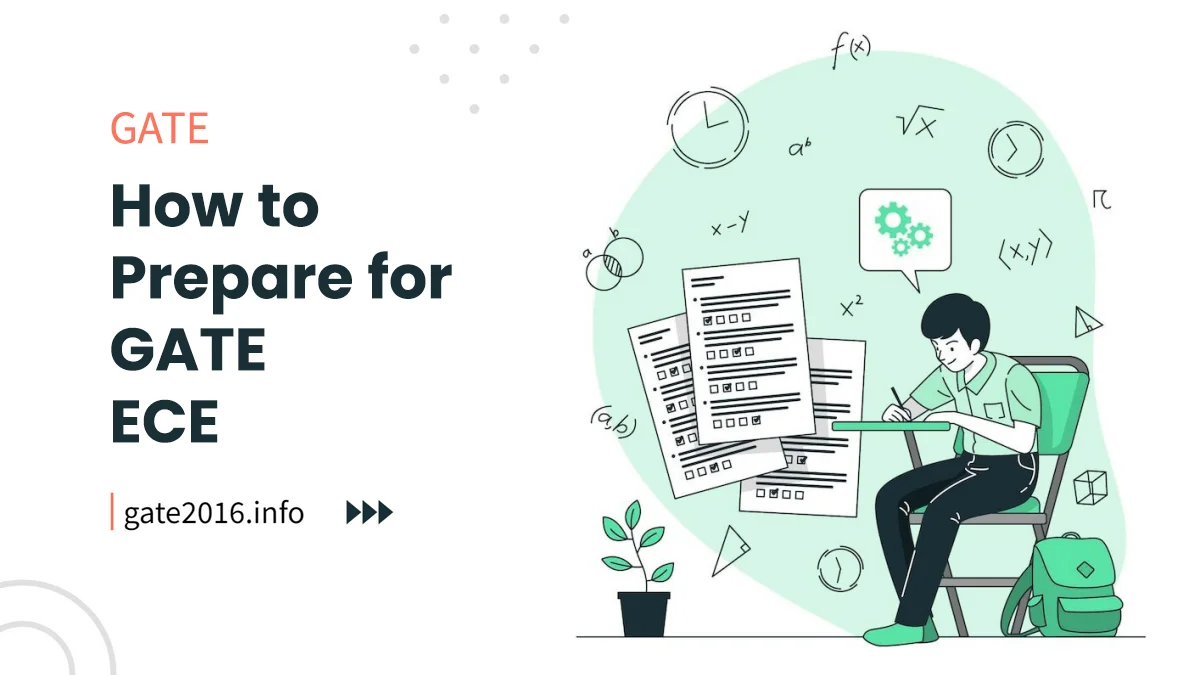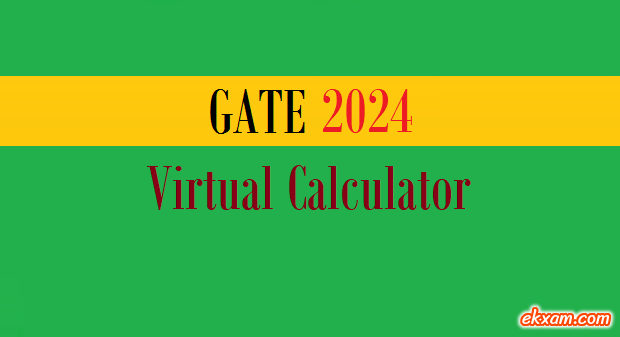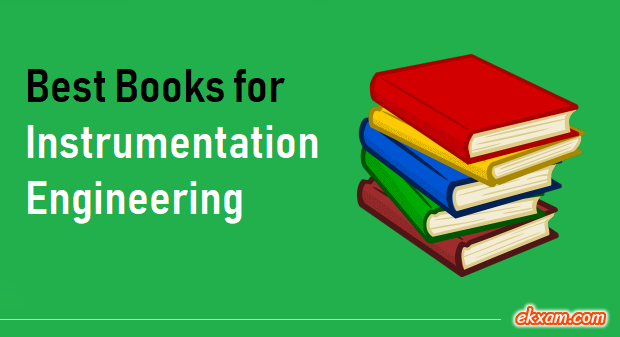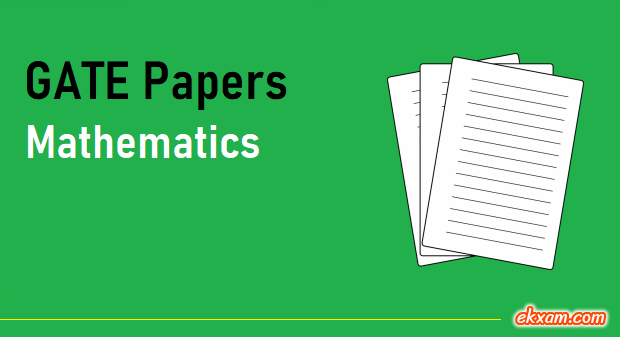Advertisements
Ratings

GATE 2024 ECE Preparation – The Graduate Aptitude Test in Engineering (GATE) is a prestigious examination that opens doors to advanced education and diverse career opportunities in the field of Electronics and Communication Engineering (ECE).
Proper preparation is essential to excel in the GATE ECE exam.This comprehensive guide outlines effective strategies and step-by-step instructions to help you prepare thoroughly and achieve success in the exam.
Contents
- 1. Introduction to GATE ECE
- 2. Understanding the GATE ECE Syllabus
- 3. Developing a Structured Study Plan
- 4. Selection of Appropriate Study Materials
- 5. Mastering Core Concepts
- 6. Problem-Solving and Conceptual Understanding
- 7. Reviewing Previous Years’ Question Papers
- 8. Taking Mock Tests
- 9. Effective Time Management Strategies
- 10. Implementing Revision Techniques
- 11. Staying Updated with Technological Trends
- 12. Managing Exam Stress
- 13. Final Weeks’ Preparation Strategy
- 14. Approaching Exam Day Confidently
- 15. Reflecting on the Exam and Planning Ahead
- Conclusion: Excelling in GATE ECE
- Additional Resources and References
- GATE Electronics and Communication Engineering Guidance
- GATE Electronics and Communication Engineering Preparation FAQs
- GATE Total Information & Guidance
1. Introduction to GATE ECE
GATE ECE is a highly sought-after examination for individuals aiming to specialize in electronics and communication engineering.
A strong preparation plan is crucial to ace the GATE ECE exam and make significant contributions to the field.
2. Understanding the GATE ECE Syllabus
To prepare effectively, it’s essential to understand the comprehensive GATE ECE syllabus.
Let’s break down the syllabus into subjects and key topics:
Table 1: GATE ECE Syllabus Breakdown
| Subject | Key Topics |
|---|---|
| Networks | Network theorems, Network equations, Filters |
| Signals and Systems | Laplace transforms, Fourier transforms, Z-transforms |
| Electronic Devices | PN junctions, Transistors, Amplifiers |
| Analog Circuits | Op-amps, Oscillators, Filters |
| Digital Circuits | Boolean algebra, Counters, Flip-flops |
| Control Systems | Transfer functions, State-space analysis |
| Communications | Modulation, Demodulation, Digital communication |
| Electromagnetic Fields | Maxwell’s equations, Waveguides, Antennas |
3. Developing a Structured Study Plan
Creating a well-structured study plan is a foundational step for effective GATE ECE preparation.
Organize your study plan by allocating time to different subjects based on their significance and complexity.
Table 2: Sample Study Plan
| Week | Subjects/Topics | Time Allocation |
|---|---|---|
| 1-2 | Networks | 10 hours/week |
| 3-4 | Signals and Systems | 12 hours/week |
| 5-6 | Electronic Devices | 15 hours/week |
| 7-8 | Analog Circuits | 10 hours/week |
| 9-10 | Digital Circuits | 12 hours/week |
| 11-12 | Control Systems | 8 hours/week |
| 13-14 | Communications | 8 hours/week |
| 15-16 | Electromagnetic Fields | 10 hours/week |
4. Selection of Appropriate Study Materials
Choosing the right study materials is critical for comprehensive GATE ECE preparation.
Utilize a combination of textbooks, online resources, video lectures, and mock tests for a well-rounded approach.
Table 3: Recommended Study Resources
| Subject | Books | Online Resources |
|---|---|---|
| Networks | “Network Analysis” by M.E. Van Valkenburg | NPTEL’s Network Analysis courses |
| Signals and Systems | “Signals and Systems” by Alan V. Oppenheim | Coursera’s Signals and Systems courses |
| Electronic Devices | “Microelectronics Circuits” by Adel S. Sedra | Khan Academy, Electronics Tutorials |
| Analog Circuits | “Microelectronic Circuits” by Adel S. Sedra | NPTEL’s Analog Circuits courses |
| Digital Circuits | “Digital Logic and Computer Design” by M. Morris Mano | Coursera’s Digital Circuits courses |
| Control Systems | “Control Systems Engineering” by Norman S. Nise | NPTEL’s Control Systems courses |
| Communications | “Modern Digital and Analog Communication Systems” by B.P. Lathi | Khan Academy, Communication Tutorials |
| Electromagnetic Fields | “Engineering Electromagnetics” by William H. Hayt | Coursera’s Electromagnetic Fields courses |
5. Mastering Core Concepts
Building a strong foundation in core electronics and communication concepts is vital. Focus on fundamental principles within each subject:
Table 4: Mastering Core Concepts
| Subject | Key Concepts |
|---|---|
| Networks | Kirchhoff’s laws, Network theorems, Resonance |
| Signals and Systems | Time-domain and frequency-domain analysis, Convolution |
| Electronic Devices | Diode characteristics, Transistor configurations |
| Analog Circuits | Amplifier configurations, Feedback systems |
| Digital Circuits | Logic gates, Flip-flops, Counters |
| Control Systems | Transfer functions, State-space representation |
| Communications | Modulation techniques, Noise analysis |
| Electromagnetic Fields | Gauss’s law, Maxwell’s equations, Transmission lines |
6. Problem-Solving and Conceptual Understanding
Achieving a balance between numerical problem-solving skills and conceptual understanding is crucial. Practice problems related to:
- Networks: Solving circuit equations, analyzing filters.
- Analog Circuits: Designing amplifier circuits, analyzing op-amp circuits.
- Digital Circuits: Solving logic gate problems, designing sequential circuits.
7. Reviewing Previous Years’ Question Papers
Solving previous years’ question papers provides insights into question patterns, difficulty levels, and exam trends:
Table 5: Benefits of Solving Previous Years’ Papers
| Benefit | Description |
|---|---|
| Understand Question Types | Identify common question patterns and formats |
| Time Management | Practice completing the paper within time |
| Exam Pattern Familiarity | Get comfortable with GATE question patterns |
| Self-Assessment | Evaluate your preparation level and progress |
8. Taking Mock Tests
Taking mock tests under simulated exam conditions is crucial for building confidence and refining time management:
Table 6: Benefits of Taking Mock Tests
| Benefit | Description |
|---|---|
| Exam Simulation | Replicate the actual exam environment |
| Time Management Improvement | Enhance time allocation skills |
| Confidence Building | Boost your confidence before the real exam |
| Identifying Weak Areas | Pinpoint areas requiring further attention |
9. Effective Time Management Strategies
Effectively managing time during the exam is paramount. Develop a strategy to allocate time to different sections:
Table 7: Time Management Strategy
| Section | Recommended Time Allocation |
|---|---|
| General Aptitude | 15 minutes |
| Verbal Ability | 10 minutes |
| Subject-specific Sections | 75 minutes each |
10. Implementing Revision Techniques
Regular revision is essential for retaining information. Utilize structured techniques to reinforce your understanding:
- Revision Schedule: Allocate time for revisiting key topics regularly.
- Concise Notes: Create summarized notes and mind maps for quick review.
11. Staying Updated with Technological Trends
Staying current with advancements in electronics and communication is crucial:
- Follow Industry Blogs: Subscribe to reputable electronics and communication technology blogs.
- Engage in Technical Forums: Participate in online discussions to learn about the latest trends.
12. Managing Exam Stress
Effective stress management is vital for staying focused during preparation:
- Relaxation Techniques: Engage in mindfulness, meditation, and deep breathing.
- Balanced Routine: Maintain a study routine while incorporating relaxation, exercise, and mindfulness.
13. Final Weeks’ Preparation Strategy
As the exam approaches, intensify revision of key topics:
- Focused Revision: Dedicate more time to challenging subjects.
- Additional Mock Tests: Simulate exam conditions with more practice tests.
14. Approaching Exam Day Confidently
On the exam day, stay composed:
- Read Instructions Carefully: Understand question patterns and instructions.
- Effective Time Allocation: Allocate time wisely to different sections.
15. Reflecting on the Exam and Planning Ahead
Evaluate performance and plan the next steps:
- Performance Analysis: Identify strengths and areas for improvement.
- Future Planning: Determine whether to pursue advanced studies or career opportunities.
Conclusion: Excelling in GATE ECE
Preparing for GATE ECE demands dedication, meticulous planning, and a structured approach.
By following this comprehensive guide, aspiring candidates can enhance their chances of excelling in the examination and making significant contributions to the field of electronics and communication engineering.
Additional Resources and References
For additional resources and references, explore the recommended textbooks, online courses, technical blogs, and practice papers mentioned in this guide.
These resources will further enhance your understanding and preparation for the GATE ECE exam.
GATE Electronics and Communication Engineering Guidance
GATE Electronics and Communication Engineering Preparation FAQs
What is GATE Electronics and Communication Engineering (EC)?
GATE EC is an examination conducted by the Indian Institute of Technology (IIT) for admission into postgraduate programs in Electronics and Communication Engineering and related fields.
It assesses candidates' knowledge and understanding of electronic circuits, communication systems, and related concepts, serving as a gateway to higher education and career opportunities in this field.
What are the important subjects to focus on for GATE Electronics and Communication Engineering preparation?
Key subjects to focus on include analog electronics, digital electronics, communication systems, signals and systems, control systems, and electromagnetic theory.
Refer to the official GATE syllabus for Electronics and Communication Engineering for a comprehensive list.
How should I prepare for the GATE EC exam?
Effective preparation involves creating a study plan based on the GATE syllabus. Utilize standard textbooks, reference materials, and online resources for each subject.
Practice solving previous years' question papers and mock tests to become familiar with the exam pattern and improve your problem-solving skills.
Pay attention to concepts, numerical problem-solving, and time management.
Are there any recommended books or resources for GATE Electronics and Communication Engineering preparation?
Yes, some recommended books and resources include:
- 'Electronic Devices and Circuit Theory' by Robert L. Boylestad and Louis Nashelsky
- 'Digital Design' by M. Morris Mano and Michael D. Ciletti
- 'Communication Systems' by Simon Haykin
- 'Signals and Systems' by Alan V. Oppenheim and Alan S. Willsky
- Online courses and lecture videos from reputable institutions and platforms like NPTEL and Coursera.
What is the exam pattern for GATE Electronics and Communication Engineering, and how should I approach it?
GATE EC typically consists of multiple-choice questions, multiple-select questions, and numerical answer type questions.
Questions cover various aspects of electronics and communication engineering, including theory and practical applications.
Start by answering questions you are confident about and manage your time efficiently. For numerical answer type questions, ensure precision in your answers.
Speed and accuracy, along with a strong understanding of fundamental electronics and communication concepts, are crucial for success in the exam.
Recent Posts
- AAI Through GATE 2024 – JE (Junior Executive)
- M Tech and MS Programs Through GATE and GRE: Navigating Postgraduate Options
- Job Opportunities After GATE 2024 in India: What You Didn’t Know!
- BSPHCL Through GATE 2024 – 40 AEE
Related Tags
How to prepare for gate electronics and communication engineering pdf 2024, how to prepare for gate ece without coaching 2024, How to prepare for gate electronics and communication engineering quora 2024, how to prepare for gate ece from 1st year 2024, online gate preparation for ece free 2024, gate ece syllabus 2024, gate ece study material 2024, how to prepare for gate ece in 6 months 2024
| GATE (Reasoning & Aptitude & Maths) Books |
| GATE Guide Books |
GATE Total Information & Guidance
Click below given links to get further information.






